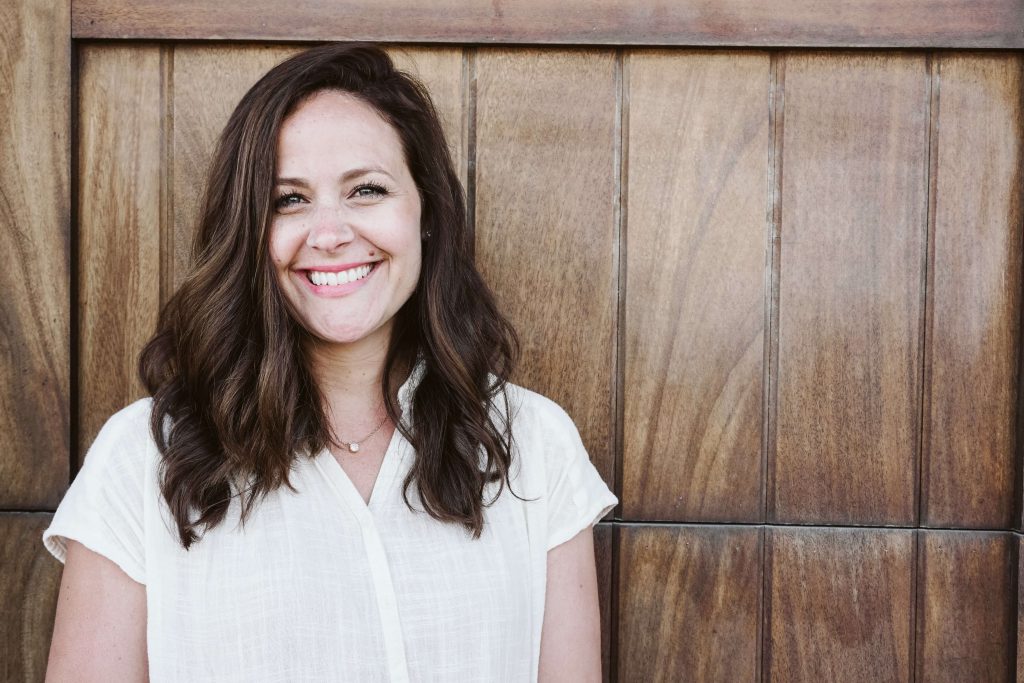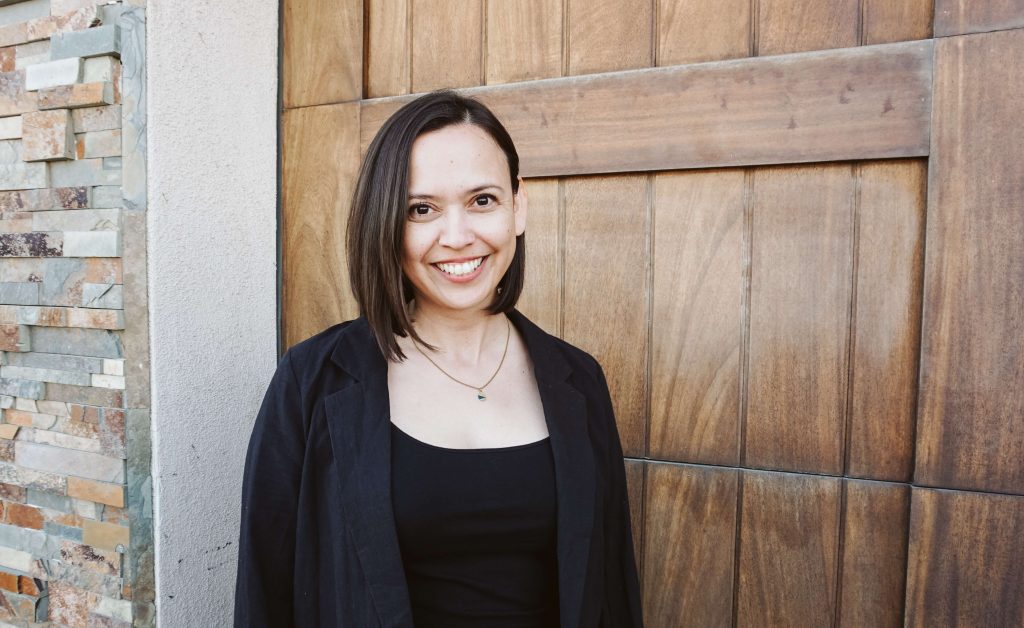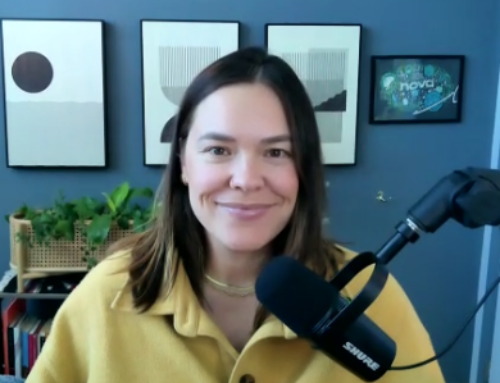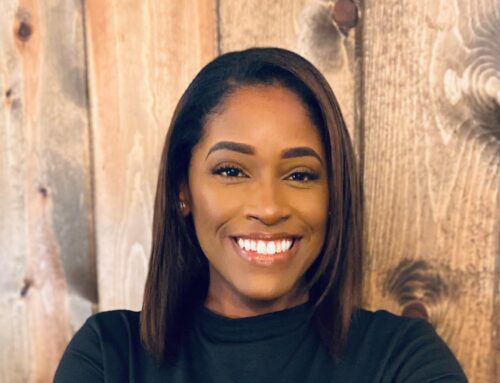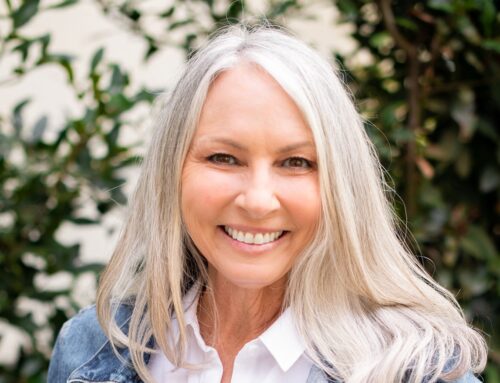What do you get when you mix a co-founder of a remote Executive Assistant agency with a long-time, rockstar EA?
A new startup company building software specifically for EAs.
In today’s episode, I chat with two amazing women running an exciting new startup building a software platform for assistants.
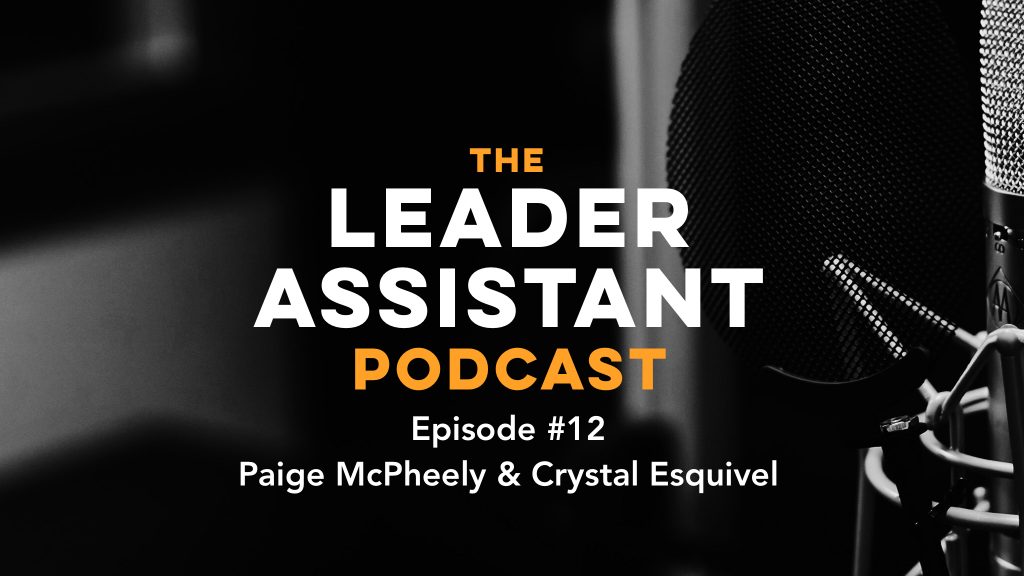
I’m joined by Base CEO and CoFounder, Paige McPheely, as well as Base’s Chief of Staff, Crystal Esquivel.
Base’s platform and community are modernizing how assistants work, empowering assistants to create more leverage for themselves and executives alike.
Paige and Crystal share a bit about their new tool for assistants, why they decided to start it, and what makes someone a leader.
We talk about running a business, interviewing assistants, whether or not tools like Slack are helping or hurting productivity, and more!
I really enjoyed this episode and I know you will too!
Below are Paige and Crystal’s bios. Be sure to connect with them on LinkedIn and say hi!
P.S. – Check out Paige and I’s webinar on AI and the Future of Assistants, if you haven’t seen it yet!
Paige McPheely, CEO of Base
Through a passion for bringing people together, meticulous attention to detail, and the ability to organize chaos, Paige co-founded 33Vincent, a remote executive assistant agency, with her long-time friend, Casey Putschoegl (pronounced pooch-aye-gul). Together, they recruited top talent and attracted high-profile clients, growing the company organically and sustainably to employ a growing team of contract executive assistants who serve busy executives across the country.
Years of experience with executive assistants outlined common pain points and needs in their workflow; EAs lacked software of their own, a strong community, and a trusted source for training and resources. With a genuine desire to serve the executive assistant community, Paige turned her attention to creating a solution: Base. With a Beta release in 2019, Base aims to improve workflows for EAs and uplift them along the way.
Paige is CEO of Base and remains an advising partner for 33Vincent. She lives in Greenville, SC with her husband Matt and their three sons, Jones, Sam and Bennett.
Crystal Esquivel, Chief of Staff at Base
Crystal has served as an Executive Assistant to a variety of leaders, including CEOs, Chairmen, Executive Directors, and Founders. She has managed weeklong food events in multiple cities, authored two books about food in her hometown of Austin, Texas, and contracted to support chefs, photographers, and cocktail experts. In 2015 she found her way to 33Vincent, a remote executive assistant agency, where she served as an Executive Assistant and the Director of Client Success.
Her years of experience as an EA, along with her understanding of the pain points of the executives they work with, led her to join CEO Paige McPheely to create an innovative software and EA support company, Base. With a Beta release in 2019, Base aims to improve workflows for EAs and uplift them along the way.
Crystal is Chief of Staff of Base and is focused on building a strong and supportive EA community packed with resources and relevant content. She lives in Greenville, SC with her husband Justin and their little black cat.
LEADERSHIP QUOTES
Plans are worthless, but planning is everything.
– Dwight D. Eisenhower
“No” is a complete sentence.
– Anne Lamont
SUBSCRIBE
Subscribe to The Leader Assistant Podcast so you don’t miss a new episode!
You can find the show on iTunes, Spotify, Google Podcasts, and Stitcher.
Join my email list here if you want to get an email when a new episode goes live.
JOIN THE COMMUNITY
Join the Leader Assistant Facebook Group here for bonus content and to network with other assistants who are committed to becoming leaders!
EPISODE TRANSCRIPT
Podcast Intro 0:00
Welcome to Episode 12 of The Leader Assistant Podcast.
Crystal Esquivel 0:05
Today’s leadership quote comes from Anne Lamott. No is a complete sentence.
Podcast Intro 0:13
The Leader Assistant Podcast exists to encourage and challenge assistants to become irreplaceable, Game Changing leader assistants.
Paige McPheely 0:24
Today’s leadership quote comes from Dwight D. Eisenhower, plans are worthless, but planning is everything.
Jeremy Burrows 0:30
I’m so excited to have Paige McFeely and Crystal Esquivel on the show with me today from Bass software. Before we get started, I’ll share a little bit of background on Crystal and Paige. Through a passion for bringing people together meticulous attention to detail and the ability to organize chaos, Paige McFeely co founded 33 Vincent, a remote executive assistant agency with her longtime friend. Together they recruited top talent and attracted high profile clients, growing the company organically and sustainably, to employ a growing team of contract executive assistants. Years of experience with executive assistants outlined common pain points and needs in their workflow. With a genuine desire to serve the executive assistant community. Paige turned her attention to creating a solution, Base with a beta release in 2018 Base aims to improve workflows for EAS and uplift them along the way. Paige is CEO of Base and remains an advising partner for 33 Vincent, she lives in Greenville, South Carolina with her husband Matt and their three sons Jones, Sam and Bennett joining Paige with me today is Crystal Esquivel. Crystal has served as an executive assistant to a variety of leaders including CEOs, Chairmen, executive directors and founders. She has managed week long food events in multiple cities, authored two books about food in her hometown of Austin, Texas, and contracted to support chefs, photographers and cocktail experts. In 2015, she found her way to 33 Vincent, where she served as an executive assistant and the Director of Client Success. Her years of experience as an EA, along with her understanding of the pain points of the executives they work with, led her to join CEO Paige to create an innovative software and EA support company Base. Crystal is chief of staff at Base and is focused on building a strong and supportive EA community packed with resources and relevant content. She lives in Greenville, South Carolina with her husband, Justin and their little black cat. Now that you know all about them, let’s jump right into the interview. Hey, everyone, thanks for tuning in to The Leader Assistant Podcast. I’m really excited for today’s episode, I’ve got the co founder and CEO, Paige McFeely of Base software. And then I’ve got the chief of staff, Crystal Esquivel. And we’re very excited to have both of you today and hear about your new company and talk a little bit about assistance. So Paige and Crystal welcome.
Paige McPheely 3:25
Thanks so much. We’re so glad to be here.
Jeremy Burrows 3:27
Awesome. Well, I’m going to jump right in and just ask you about your new company. I’m actually I haven’t actually tried out or beta tested the software yet. So I’m really excited. I think it’s actually good that I have it because then you can kind of tell me firsthand for the first time while the listeners get to hear about it as well. So why don’t you both just kind of chime and maybe Paige first and then Crystal, tell us a little bit about your new company what you’re up to? And while you’re excited?
Paige McPheely 3:55
Sure, absolutely. So I’ll tell you a little bit of the backstory first. After years of hiring, training and working alongside EAS, we we simply just grew tired of having the same thought over and over again, wouldn’t it be great if we had software that actually catered to what we needed, something that was actually built for EAs, so we figured if we had such great ideas, that it wouldn’t do anyone any good if we kept waiting for someone else to build it. So we decided to build it ourselves. And so in the long term Base as a software tool will be the hub for all things EA. So when you come into work in the morning, you’ll open up your Base and be able to do the vast majority if not all of your work from our tool. But as we know EAs do a lot of things. And so we had to decide where do we start with this tool. And so where we started was actually listening, gathering a group of super elite EAs and trying to understand their best practices that we could then triangulate and form into software. So to start we’re focusing on bringing streamlined, efficiency to a number of the tasks that elite EAs do as a matter of best practice. So I’ll give you one example. Email digests, we know that elite EAs have some form of email roll up or recap to their executives on a regular basis. But we also know that much of this process is manual, and involves a whole bunch of copying information from elsewhere primarily the calendar, and so our email digest builder really quickly and easily aggregates all of that information. And so far, we’ve seen early results that building an Email Digest is now three times faster than it used to be with the traditional method. So that’s just one example of where we’re where we’re getting started kind of building the baseline for the EA base.
Jeremy Burrows 5:43
Awesome. Crystal, how about you?
Crystal Esquivel 5:46
Yeah. So I would say that, in addition to the software Base is also striving to be the hub for EAs in community and content as well. So we as an EA in the past, I had a really hard time finding a place for learning and one place for all of us to chat and learn and share best practices. So we are also putting out a lot of content. We’re building up a community where you’re creating templates and ebooks and just one space that really celebrates EAs and gives them a place to learn.
Jeremy Burrows 6:22
Awesome. Sounds really exciting. How is the how’s the progress been so far? How have you guys run into any challenges?
Paige McPheely 6:31
So I mean, yes, there have been little bumps along the way. But really, it’s been outstanding. This community of executive assistant, every single person we’ve spoken with has been so wonderful and warm and been excited about someone trying to build something that suits their needs uniquely. So it’s been it’s been a tremendous process.
Jeremy Burrows 6:51
Great. So Crystal, when did you shift from, you know, I’m an EA, you’ve been at EA for a while, in fact, in my last job, I we had communicated back and forth. I don’t know how many years ago that was. So small world, but uh, but yeah, when did you shift from I’m an EA to I’m an entrepreneur?
Crystal Esquivel 7:13
Well, I think the shift probably started at 33 Vincent, I was an EA and then as we were growing, we found a need to have a more of a client success department. And so I built that and became Director of Client Success, in addition to being an EA, so I was kind of moving into a leadership role already there. And then once Base got started, we realized that, well, first of all, I really wanted to be involved, because it was something that I’ve been doing forever being an EA and needing the software and needing this community. So I wanted to have a place in their place in the room to be able to give input and be a leader in that role. So I moved over to Base because I wanted to bring that knowledge and that excitement, and Base, but it needed at the beginning was leadership. And so that’s kind of the role that I moved into.
Jeremy Burrows 8:06
Awesome. So how do you think being an EA prepared you to, you know, to run a business,
Crystal Esquivel 8:13
I think that being an EA means that you have to be ready for anything. And every day is different, there’s always change, there’s always challenge. I tend to get bored after a couple of years in one regular job if there’s not a lot of change and challenge. But that doesn’t necessarily happen as an EA, because things are always changing. And that’s pretty much what Startup work is in building software. It changes every day. And there’s a lot of challenges. And so I felt ready to, to kind of face that because of my background. And I’d also worked with a lot a lot of different executives, as Director of Client Success at 30 events. And I learned about different industries. So I felt this kind of ready to bring that knowledge into a leadership role.
Jeremy Burrows 9:02
Let’s kind of step back a little bit. Paige, what was your very first job?
Paige McPheely 9:07
Yes. So my very first job. I don’t know what, what my deal was, but I was so excited when I turned 16 to get a job. I think right after I had my 16th birthday, I went to my favorite restaurant, which was the health healthy fast food restaurant in Tampa, Florida, where I grew up and just worked serving smoothies and air fries and fake chicken tenders and salads and I was just top of the world.
Jeremy Burrows 9:35
So baked chicken tenders are pretty healthy.
Paige McPheely 9:38
Apparently.
Jeremy Burrows 9:41
What was what’s one skill in that job, that very first job that you’ve used to this even to this day?
Paige McPheely 9:48
Sure. So customer service is everything. My, my mother’s father was a French chef from France and so all of us it was a requirement as we were growing up to work in a restaurant, and I think that you learn more working in a restaurant and serving people who sometimes are not all that nice, or all that caring are all that considerate, considerate of the work that you do to serve them food. And so learning to kind of swallow your pride, continue to say yes, even if you’re kind of panicking inside that you don’t know how you’re going to get what you need to get done, done. And I’ve, I’ve carried that with me into every role I’ve had ever since then. And I think because of that, I’ve learned a little bit of a skill of how to stay calm on the outside, and not let my emotions get the best of me and work setting.
Jeremy Burrows 10:36
That’s great. Yeah, I was a, I was a busser at Outback Steakhouse, while also working at Walmart. And one thing that I like to think about, you know, how that helped me in my career is, it just, it just gave me a respect for restaurant industry workers. And so every time I go to a restaurant, or, you know, I’m about to tip a waiter or a busser comes by and grabs my dishes, I’m just like, man, you know, just have a higher level of respect and empathy towards that kind of work, because I’ve actually done it before.
Paige McPheely 11:11
Yeah, absolutely. I completely agree.
Jeremy Burrows 11:14
So Crystal, what about you? What was your first job?
Crystal Esquivel 11:17
So appropriately? My first job was to do inventory and tick barcode labels, on library books in the school library? Because I’ve been in there from the very beginning. That was it. It was a lot of fun,
Jeremy Burrows 11:31
perfect. Page, how did you decide to start not only a company, but how did you decide to get into software? Because this is you’re going from I think you said you had marketing and sales background and the 33. Vincent, but how did you get the idea or the gumption to go straight into the software startup company?
Paige McPheely 11:58
That’s a great question. So I’d say that, it was a little bit of stupidity, maybe. But what what really it was, is that we saw a need, and we were tired of waiting for someone else to just do it for us, we decided we were going to do it. So we’ve learned a lot over the last year or so that we’ve been on this journey, primarily that working with software engineers, instead of primarily, EAs is very different. But we’ve also learned a ton about this, this industry and the pace at which it moves, and the expectations of a startup in the software space. So it was a lot of not knowing what I didn’t know and being ready for a challenge. But primarily knowing that we, we have this need, and we’re we’re going to meet the need, because no one else is going to do it for us.
Jeremy Burrows 12:50
That’s great. So let’s talk a little bit. Crystal, when you’ve been, how many years have you been an EA crystal?
Crystal Esquivel 12:59
At least 12? in some capacity, I would say.
Jeremy Burrows 13:04
Okay, so what did you love about the role? And what did you hate about the role?
Crystal Esquivel 13:08
So I kind of mentioned earlier, I love challenge, I like it when things change. And so I love that I also am every personality test pretty much puts me in the empathy group. So it’s always how are other people doing? How can I take care of them. And being the E role, EA role really fulfills that. So I’m able to support someone else, make sure everything’s going smoothly for them. You’re supposed to be thoughtful and caring and nurturing, which I’m just already going to do anyway, if I know you. So it’s something that really plays to my strengths. And I like feeling that I’m valuable to a person and really changing their life with what I do. So that’s kind of what I’ve loved about it. What I hate about the role is the lack of respect in general for assistant roles. I think a lot of people assume that it’s a stepping stone to something else, instead of the EA role being a career in itself. And it’s, it can be amazing and fulfilling. Hopefully well paid. But a lot of people don’t see that. And I also hear when meeting other EAs if you ask me, what do you do? What’s your job? They’ll say, I’m just an assistant, or I assist someone and it’s, it’s not it’s a powerful role. It’s a leadership role. And I feel like I want respect to come not just from outside the community, but within as well.
Jeremy Burrows 14:37
Yeah. So one of the things that I like to when I’ve talked to a lot of EAs one of the things I like to hear other crazy stories. We kind of have a unique view on the world. Since we’re so close to executives and so close to people that can typically be seen as unapproachable or, you know, hard to hard to reach. So do you have any crazy stories from your career as an EA,
Crystal Esquivel 15:08
I have a lot, they’re usually not safe for work. But there’s there’s a lot getting to know someone really well. And I think that as an EA, I tend to have that really close relationship with the executive not just as an assistant, but become kind of a confidant. So I hear a lot of really great stories. But I think kind of the daily fun thing is, when I let people know like, I get a text from my executive that what’s my dentist’s name, or what’s my LastPass password, and you know, the silly things that you like, why do you not know this? And it’s so people always, like hearing those, the other ones, I think I’ll keep from the air. A little, I have a very sarcastic and irreverent sense of humor. And I tend to pull that out of my executives as well. So there’s a lot of hearing the fun side of their life as well.
Jeremy Burrows 16:03
Pretty much every assistant that asked that question is like, well, there’s the crazy stories that I can tell you and the ones that I can’t
Crystal Esquivel 16:09
think of Right? Exactly.
Jeremy Burrows 16:14
Paige, who was the most influential person in your life?
Paige McPheely 16:19
That’s a great question. So I’d have to say my mom, which up until maybe a couple years ago, I still spoke with her every night before we went to bed. But she was a young mom in her early 20s, when she had me and then, when I was only a couple years old, became a single mom. And she just, I feel like in a lot of ways, we grew up together, and watched her go from working multiple jobs to establishing her career, meeting her second husband and the love of her life. And then going on to have two more girls who are now my sisters and who are in high school. She’s just been an inspiration to watch the transformation of her. Figure out who she really is. And it’s given me a lot of freedom to believe in myself and know that challenges can be overcome, and that I’ll always have her as my biggest cheerleader.
Jeremy Burrows 17:12
Awesome. Did she have any, Did you learn anything from her? In regards to like, entrepreneurial, running a business type skills?
Paige McPheely 17:21
So yeah, probably to be scrappy, and really creative with my resources. She, she just could always make it work. And maybe the calm exterior of that I have, I think, get from I get from her as well of just being able to, yes, sure. Yeah, we can take care of that. And it’s just have no idea how we’re going to do it, but somehow pull it out.
Jeremy Burrows 17:46
Yeah, figure it out. Awesome. So Crystal, what do you think that executives should look for in an assistant?
Crystal Esquivel 17:57
I think that there’s kind of a long list of things. But from what I’ve seen, in the past, looking for loyalty is really important. And that is just, you know, your executive is who you serve, and whose best interest you’re looking out for. And always always, so that kind of loyalty to the executive. I also have just in the past year or two learned the phrase of servant leader. And I think that’s, that’s such a good mindset to have that you are completely comfortable being in a service oriented role, but also needing to be a leader and, you know, manage up and be confident and make decisions and give advice, while also saying yes, I can get that done without, you know, feeling less than because you’re serving in that capacity. So that confident managing up, attention to detail, willing to learn and be flexible. There’s kind of a lot going on there, I guess. But I feel like this servant leader concept kind of, kind of just sums it all up in my mind.
Jeremy Burrows 19:11
Yeah, totally agree. One thing I’ve I counsel executives, when they’re looking for hiring an assistant, it’s like, Listen, you can’t have, you can’t hire somebody that wants the spotlight that you know, wants to kind of use you as a stepping stone to get something else. You’re just it’s just not going to work. So totally, totally agree on the servant leadership thing. So, Paige, what’s one tip that you would give executives to help them get more out of their assistants? So you you helped with 33 Vincent you was a virtual remote executive assistant company. So you had a lot of clients and I’m sure some of them did not treat the assistants well or did not know how to even use the assistants well. So what’s a tip that you would give executives to help them?
Paige McPheely 20:07
Yeah, so we have seen, we have seen some things. And also, I’ll say that I’m guessing you’ve come across this as well, with your executive coaching side of things that a lot of times executives don’t really know where to start. I think that it’s not really clear what a successful relationship looks like with an executive assistant, and they’re not sure. Are they doing it right? What could they do better? How do they even get started. So oftentimes, a tip that I’ll give is that it’s important to realize that well, an EAs role is to support you, the executive, it’s not a one sided relationship by any means. And that a successful relationship will require the executive to put in the time and effort to set up their EA for success. It’s a two way street. So it’s not only a big time commitment, and emotional commitment upfront, but just like any relationship that requires a lot of ongoing work, so that the relationship can remain fruitful and valuable. And I think a lot of times executives think oh well I just tell them, you know, where I want to sit on an airplane and what my favorite, you know, food is at this restaurant, and where I like to have coffee meetings, and not go beyond that to that deeper level. And I think if you find the executives who really realize the power and the strength that it requires to admit just how much help that they need, and are willing to receive, that’s when you can unlock the key to a successful relationship.
Jeremy Burrows 21:29
Yeah. Crystal, what’s what’s the number one challenge that you had as an assistant and have seen in others, related to being an assistant.
Crystal Esquivel 21:43
Oh goodness. The number one challenge for an EA? That’s hard, I think that getting started. And having the executive understand that it takes a little bit of time to ramp up and learn things. I feel like, for example, at 33 Vincent, when we would place an EA and you know, the executive has been realizing that they need support, they need help, and they get the EA and they want to see their inbox clean in a week, you know, they want to see the difference right away. And it’s, it takes some time of getting to know that person and getting to know, their environment and their colleagues and priorities and hierarchies. So it’s, it’s seeing that ramp up time, it can be frustrating on the EA side as well, if you just want to make a difference, and you want to help the executive right away, but it’s, it’s just that first ramp up time, I think can be really challenging for both sides.
Jeremy Burrows 22:42
Yeah, onboarding, is very, it’s the not as fun part a lot of the times because like, like you said, it’s like, oh, I want to get my inbox cleaned. I want my you know, my to do list organized and but they don’t they need to get to know you and know what you what your priorities are and how you work and your preferences and all that takes time. So Paige, I want to talk a little bit about your background. You mentioned some marketing, and did you say marketing and sales? Is that right?
Paige McPheely 23:17
Yeah, sales and advertising.
Jeremy Burrows 23:19
sales and advertising. So there are a lot of EAs kind of coming out of the woodworks, thanks, thankfully, I, in my opinion, that are starting their own blogs, you know, providing resources, further assistance, and, you know, speaking at events and really bringing other EAs together and training them. But there are also a lot that I’ve talked to that, that really are excited to do something like that. But they’re they’re really, they don’t want to advertise themselves or self promote themselves. What would you what would you kind of say to assistants who have an idea? Maybe it’s a business idea, maybe it’s not maybe it’s not necessarily an EA, training blog or anything, but it’s like another business or whatnot. In your advertising experience? What What would you recommend to someone who wants to kind of put themselves out there? And that has a hard time with kind of self promotion?
Paige McPheely 24:15
Sure. Yeah. I mean, it’s tough. And there’s a lot to be scared of about it. But I’d also say, in today’s world, there are so many resources that can enable us to just try a little bit. It’s not like we have to quit our job and put ourselves completely out there and put our finances at risk. If we want to try something new. It’s easier than ever before to start something on the side. And I think that a lot of companies and I’ll use 33 Vincent as an example, obviously, because I’m a big fan of theirs. But what what they’ve always done really well is if someone in the company has an idea, then they’re encouraged to bring that idea to the leadership, and not just the idea, but how would you go about it? How would you How would you make this a reality and either if it’s something that fits within the bounds of 33, Vincent, they’ll do whatever they can to make it a reality if it if it makes sense. Otherwise, though, give them the coaching the support the training that they need. So I guess at a basic level, I’d say, don’t give up, put some plan to your idea, put some structure around it, and then ask for help. People are really, really willing to help and lift you up. Whether or not they’re EAS like you, or they’re just your supporters.
Jeremy Burrows 25:30
That’s great. What do you wish assistants would do differently Paige?
Paige McPheely 25:37
So that’s a really, really good one. I think that while many executive assistant do this, this particular thing really well, I’ve also seen a lot who don’t. And this kind of adds on to the previous answer that I give. But I would really love to see more EAs take initiative and run with their ideas, particularly as it relates to the work that their executives are doing. And I think that’s because EAS often have the benefit of being just slightly removed from the strategic work that their executive is leading, which can lead to a really unique vantage point or insight on network. And so I think frequently you’ll hear EAs talk about like, oh, gosh, I wish that they would do my executive would do XYZ and not really say anything about it or surface that thought. But I’m I’m willing to bet that the executive frequently would be thankful for their input and perspective and likely take it into account.
Jeremy Burrows 26:38
Yeah, that’s great. Yeah, I just wrote a guest blog post on your website about questions that assistants should ask their boss and questions, the bosses should ask their assistants. And I think
Paige McPheely 26:50
it was so good.
Jeremy Burrows 26:51
The it’s pretty surprising how many assistants are like, Wow, I’ve never I would never asked that question, or I don’t think I could ask that question. And like, I think you need to and you need to try. Try to ask that question.
Paige McPheely 27:05
Totally. Yeah. So I think if I summarize it, then it would be to elevate yourself as a servant leader, you were there serving an important role. You’re not just there to support your executive, but your existence is actually crucial, crucial to their success, and so elevate yourself. And by the way, that blog post, when I saw that, when I saw the content is coming in and thinking yes, I have had this conversation. 1 million times. I just I love that we’re all speaking the same language.
Jeremy Burrows 27:30
Yeah, totally. So Crystal, what’s, what’s a productivity hack that you can’t live without?
Crystal Esquivel 27:37
This is something that I kind of picked up just in the past year or two. And it’s, it’s not something I usually recommend to other people, because it requires weekends. But I take a little bit of time on Sunday to look at my calendar, my inbox, my task list, say what’s coming up. And usually it’s just 30 minutes, or an hour of kind of reviewing what’s happening, maybe, you know, drafting some emails or something, and then I don’t dread that crazy Monday morning, as much. So when I get there on Monday morning, it’s I already kind of know what’s coming. I know what to attack first. And I’m not feeling that, you know, coming from the weekend, and oh, my gosh, how did all this happened over the weekend. So it does require a little bit of your weekend time, but it just helps Mondays be so much better?
Jeremy Burrows 28:29
Great tip. Yeah, I do I do something similar, where I just pull up the calendar at minimum. And it’s like, alright, I actually probably do this every night. Just making sure I’m not forgetting anything, making sure I’m kind of in the right mindset. That way I don’t show up on like you said, I’m gonna show up the next morning like, wait, what? Oh, yeah, I forgot about that.
Crystal Esquivel 28:49
Exactly. It’s so helpful to do that when you’re alone. And no one else is checking their email. And no one is slacking you. And you just have that quiet mindset where you can actually think through things and you’re not in the reactive mode.
Jeremy Burrows 29:01
Speaking of slack, you have your building the software for EAs and their bosses. Slack just I think submitted their IPO or whatever there. Remember when the when it’s happening, but there’s a lot of talk about Slack. A lot of it is about you know the company and how it’s growing and how everybody’s using it, whatever. And then a lot of it, there’s some research coming out now saying that slack is actually detrimental to our productivity, and our focus. And so I’m curious what your thoughts are on just slack in general, as far as productivity versus email or, you know, a project management tool, but also versus and kind of up alongside your new software that you’re building. Where do you see the future of communication with your new software? So if I’m an EA, I’ve got email. I’ve got text, I’ve got slack, we’ve got Base. Where do you see that all fitting in and tying in and how do you see the future of EAs and their bosses working together? And in which medium do you see kind of rising above the rest?
Paige McPheely 30:09
Yeah, it, it’s tough. I I’ll touch on Slack first. So I think that slack when done right, can be transformational for our business. Our time at 33. Vincent, I think we did it right. And really limited the number of internal emails that we received, and it reduced the noise overall. And then we’re obviously very easily able to do search and find whatever we needed quickly. But I’ll say that as we’ve stepped outside of 33 Vincent and and started working at Base, we’ve got a lot more input. So now we have slack. But we also have our CRM tool. And we also have a different project manager, project manager. And then we’re not only getting our internal emails, but it’s coming from everywhere else. And I always want and need an assistant. But right now, it’s more than ever, because I feel like that’s one of the most important things that an assistant can do is help not only reduce the noise, but streamline and control the access of the noise or control the volume of the noise. Because it’s a lot harder to be a gatekeeper for yourself than it is to be for someone else. And for someone else to do it for you rather. So I think that I mean, I love slack, I, it’s one of those tools that if we didn’t have it, I think my job would be a lot harder, which is when you’re building software, that’s, you know, kind of the response you want is, I would be very, very upset if this tool went away. But you have to make sure that it’s not just one more bit of noise coming in, which is I think frequently what can happen and probably leading to study saying it’s detrimental for productivity. how that relates to Base, and the relationship between EAs and executives, is very, very similar. So that was really the genesis of the idea for Base is, oh my gosh, as an assistant, you have to Log In Log Out of not only all of your tools, but you often have your logins for your executive as well. And what a waste of time, frankly, the cost of context switching is higher than time there’s a mental class to it as well. And we wanted to streamline that as much as possible. So one thing I didn’t mention about Base early on is, as an EA, you’d be able to log into the platform, and you’d have your own kind of global profile. But within that you would have different Bases for each of the executives that you either supported or might need access to their information. So you can really quickly and easily toggle back and forth between there between the different various, or the various executive profiles. So executive a, you’d be in their base, and you’d have everything right there, you’re not logging in, you’re not logging out, and it would be access to their calendar, it will eventually have access to deduce all of the things like that. And then you can do that for various executives. So even though you support one executive, Jeremy might need access to other executives and other members of the leadership team at your company. And so we really want it to be the hub and something that’s built uniquely for EA workflows, and not adding to the noise. And another thing that we’ve been really careful about is not wanting to change the workflow of the executive, because the same reason they’ve got so much noise coming at them. So we’re thinking carefully, how can we streamline that flow without just being another tool. So that’s something that is in the works, that I think my my VP of product and engineering would kill me if I give too many details away on this podcast, but just know, it’s really important to us, and it’s something that we’re gonna be really careful about and intentional about.
Jeremy Burrows 33:50
That’s, that’s really, really interesting. So one, one thing that I’ve struggled with executives is okay, you know, here’s a new software tool, and it’s like, well, they’re never gonna log in. And I just know, they’re never gonna log into it, but never going to use it. So, you know, I just, I just basically gave up on that years ago and decided to just use my simple, you know, two column Google Sheet and email basically, is what I use and I personally like it this way. And my, my bosses over the years have not had to learn a new tool or remember a new login and whatever. So that’s been great. So it will be interesting to kind of follow you all and see how you’re able to streamline that without creating another just another tool for for executives to not sign into.
Paige McPheely 34:43
Yeah, exactly. But Base will be built. It is built for the EAs and it will be built in a way such that if the executive is like no, no, I don’t want to use this. I don’t want another tool. It’s not going to impact the EAS ability to use Base it is it does not require two way participation. That’s not to say that we’re not developing features that will make it a lot easier for the executive to engage with their EA, almost in, you know, like a walkie talkie sort of fashion where there’s this direct line of communication. I don’t want you to think we’re actually building walkie talkies we’re not but still streamlining that back and forth. Communication is really, really important to us. But we, we are really building this for EAs and I don’t want their ability to use this great tool, hinging on the fact of whether or not they can convince their executive to use it as well.
Jeremy Burrows 35:33
Perfect. So Have either of you hired an assistant yet for the new company? And are there plans to do so?
Paige McPheely 35:40
So, Yes, we we are in the process of doing that. We obviously have a little bit of an in with 33. Vincent. And so. But it turns out that even as a co founder there, we are still subject to their their onboarding process. So we are in the queue. And we hope to get our new assistant in the next couple weeks. And we’re very, very excited. I think once you experience the the value and the joys of working with an EA, it’s super hard to go without
Jeremy Burrows 36:15
Crystal what what interview questions Do you ask potential assistants? Or do you would you recommend somebody interviewing an assistant to ask?
Crystal Esquivel 36:25
Yeah, I think so for me, I always end up going off script. And I have great intentions with specific questions. And then I start the interview and say, Okay, let’s just talk. But I always try to cover a few things within that conversation. And I think a lot of it stems from having been an EA, I am biased to people who love the role. So I’ll ask why are you interested in this position? And not only that, but what does executive assistant mean to you? And I think when people answer that I can I can gauge are they understanding how important it is? How integral the partnership is to it with the executives? If the answer is just well, you know, I’ll help with calendars. Or maybe it’ll help with email. It’s like, okay, I need more from you than that. I need you to want more than that. I also asked about if they’re familiar with the term servant leadership, not that they have to be but if I explain what that is, are they comfortable with that? Are they comfortable in that service capacity, while also being confident? And especially with Base, being a software company we’ll ask what are your favorite tools, apps software platform, and since we at those events that would work with remote EAs, we needed to know that they are willing to learn these types of platforms, because that’s the main form of communication, and if their favorite app is outlook and that’s all, then it’s not a good sign that they have taken on the let’s see the the interest of learning all of these new tools and what’s out there, and what’s the best productivity tool they can use. And so I like asking that specifically for Base, but we also have kind of project type questions. Like if you were writing a one pager for EAs, how do you while your executive in the first 30 days? What kind of info would you include? And that helps with seeing their process, if they under understand the onboarding process understands the integral goal of it. So kind of talk through all of that without asking specific questions, because I’m horrible at that, but and then all the usual stuff like, you know, what kind of mistakes have you made? And how did you, How did you overcome them and things like that?
Jeremy Burrows 38:59
Those are great. I think I want you to interview me just to experience it. Okay, well, let’s wrap things up. A couple quick questions. So, Paige, I’ll ask you first, what makes someone a leader?
Paige McPheely 39:15
So I think the ability to take responsibility and be confident and and always keep moving forward.
Jeremy Burrows 39:23
Crystal, what would you say what makes someone a leader?
Crystal Esquivel 39:28
I would add on to what Paige said and say that, also just wanting to be a lifelong learner and be searching for new information. And understanding that it you know, as a leader, it doesn’t mean that you have all the answers, it means that you know how to get them. So, admitting that you need help, but you know, still maintaining that confidence and taking responsibility for your own action.
Jeremy Burrows 39:53
Great. Well, thanks. Thanks, guys. I really appreciate you taking time out of your Friday morning to talk to me and share about your exciting new company. Everyone listening can find you at basehq.com, and Twitter and Instagram atthebaseapp. So just in closing, how can we support what you’re doing? And how can my listeners support what you’re doing?
Crystal Esquivel 40:21
I would say join our mailing list. Check out our blog, read our newsletter, follow us on social media, tell your EA friends that we’re out there and looking out for them. Paige?
Paige McPheely 40:33
I would add that you can use the product, sign up for your free trial today. Get in there, check it out. We’re adding features pretty regularly now. And like we said earlier, we really want the feedback of this community to help us make sure we are building something that actually meets the needs of the community. So get in there. Tell us what you think. Yeah.
Jeremy Burrows 40:54
Great. Thanks so much, Paige and Crystal. Thanks everyone for listening and we’ll talk to you soon.
Podcast Intro 41:00
Today’s show notes can be found at leaderasstistant.com/12
Podcast Outro 41:15
Help my dada and leave a review on iTunes. goburrows.com

